Don't wanna be here? Send us removal request.
Text
Anna Sawai refused sex scenes, nudity, to change audience views on Japanese women

Full article at the Asahi Shimbun.
Even before auditioning for the now record-setting “Shogun” drama series, actress Anna Sawai set her own rules for production in an attempt to change overseas views that sexualize Japanese women. She told the producers she wouldn’t appear in the series if it contained love scenes. And after she won the role of Toda Mariko, Sawai refused to appear in a scene that required her to remove her clothes and bathe in a hot spring. In an interview with The Asahi Shimbun four days after she won best actress in a drama series at the 76th Emmy Awards, Sawai said she wanted to avoid being seen as a sexual object by audience members around the world. “Overseas people see Japanese women as sexual beings and think they don’t speak up for themselves,” Sawai said. “And I’ve always thought that is not true.”
What a legend.
I’m really glad she took that stand. Mariko (and others) being a 60’s stereotype of what James Clavell wanted Japanese women to be is the weakest (and most offensive) part of the book. The change to making Mariko a character with agency and goals beyond 'I love Blackthorne' is what makes the 2024 adaptation truly great.
131 notes
·
View notes
Text
Reading negative reviews of fx Shogun is so wild in some cases, like
"As someone who loved the book, I can't forgive the total character assassination of Mariko!"
My brother in Christ, the fact that we are no longer exposed to the "warmth in her loins that she had never felt before" the moment she lays eyes on the blonde greek god gigachad Blackthorne IS A GOOD THING.
40 notes
·
View notes
Note
Hey! Love your writing. I was looking forward to the Three Unifiers story. When can we expect that?
Thanks friend!
I don't think I'll be doing the Three Unifiers story. My latest post was because I was getting inundated with Asks about the show's historical accuracy.
I wanted to try and put something out about period drama accuracy ≠ historical accuracy, and that the commonly known samurai trope is almost entirely BS. It's been used to justify so much horror it felt wrong to me to continue entertaining it when so many people were writing in as if the show was a documentary.
With that said! For the three unifiers, their wikipedia articles are your best bet.
Oda Nobunaga
Toyotomi Hideyoshi
Tokugawa Ieyasu
If that doesn't sate your apetite, this book is complex, but the best English-language one I've read.

Sorry the last part of the Shallow-Dive series was a downer, but I don't want it to put an end to your interest in Japanese history! It's fascinating!
#shogun#shogun fx#shōgun#cinematv#fx shogun#dailyflicks#history lesson#history#sengoku jidai#toyotomi hideyoshi#oda nobunaga#tokugawa ieyasu#thanks for asking!
6 notes
·
View notes
Text
Shōgun Historical Shallow-Dive: the Final Part - The Samurai Were Assholes, When 'Accuracy' Isn't Accurate, Beautiful Art, and Where to From Here
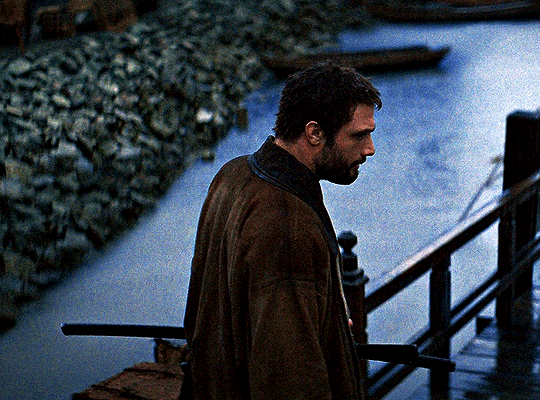
Final part. There is an enormous cancer attached to the samurai mythos and James Clavell's orientalism that I need to address. Well, I want to, anyway. In acknowledging how great the 2024 adaptation of Shōgun is, it's important to engage with the fact that it's fiction, and that much of its marketed authenticity is fake. That doesn't take away from it being an excellent work of fiction, but it is a very important distinction to me.
If you want to engage with the cool 'honourable men with swords' trope without thinking any deeper, navigate away now. Beyond here, there are monsters - literal and figurative. If you're interested in how different forms of media are used to manufacture consent and shape national identity, please bear with me.
I think the makers of 2024's Shōgun have done a fantastic job. But there is one underlying problem they never fully wrestled with. It's one that Hiroyuki Sanada, the leading man and face of the production team, is enthusiastically supportive of. And with the recent announcement of Season 2, it's likely to return. You may disagree, but to me, ignoring this dishonours the millions of people who were killed or brutalised by either the samurai class, or people in the 20th century inspired by a constructed idea of them.
Why are we drawn to the samurai?
A pretty badly sourced, but wildly popular history podcast contends that 'The Japanese are just like everybody else, only more so.' I saw a post on here that tried to make the assertion that the show's John Blackthorne would have been exposed to as much violence as he saw in Japan, and wouldn't have found it abnormal.
This is incorrect. Obviously 16th and 17th century Europe were violent places, but they contained violence familiar to Europeans through their cultural lens. Why am I confidently asserting this? We have hundreds of letters, journals and reports from Spaniards, Portuguese, Dutch and English expressing absolute horror about what they encountered. Testing swords on peasants was becoming so common that it would eventually become the law of the land. Crucifixion was enacted as a punishment for Christians - first by the Taiko, then by the Tokugawa shogunate - for irony's sake.
Before the end of the feudal period, battles would end with the taking of heads for washing and display. Depending on who was viewing them, this was either to honour them, or to gloat: 'I'm alive, you're dead.' These things were ritualised to the point of being codified when real-life Toranaga took control. Seppuku started as a cultural meme and ended up being the enforced punishment for any minor mistake for the 260 years the ruling samurai class acted as the nation's bureaucracy. It got more and more ritualised and flowery the more it got divorced from its origin: men being ordered by other men to kill themselves during a period of chaotic warfare. I've read accounts of samurai 'warriors' during the Edo period committing seppuku for being late for work. Not life-and-death warrior work - after Sekigahara, they were just book-keepers. They had desk jobs.
Since Europe's contact with Japan, the samurai myth has fascinated and appalled in equal measure. As time has gone on, the fascination has gone up and the horror has been dialled down. This is not an accident. This isn't just a change in the rest of the world's perception of the samurai. This is the result of approximately 120 years of Japanese government policies. Successive governments - nationalist, military authoritarian, and post-war democratic - began to lionize the samurai as the perfect warrior ideal, and sanitize the history of their origin and their heydey (the period Shōgun covers). It erases the fact that almost all of the fighting of the glorious samurai Sengoku Jidai was done by peasant ashigaru (levies), who had no choice.
It is important to never forget why this was done initially: to form an imagined-historical ideal of a fighting culture. An imagined fighting culture that Japanese invasion forces could emulate to take colonies and subdue foreign populations in WWI, and, much more brutally, in WWII. James Clavell came into contact with it as a Japanese Prisoner of War.
He just didn't have access to the long view, or he didn't care.
The Original Novel - How One Ayn Rand Fan Introduced Japan to America
There's a reason why 1975's Shogun novel contains so many historical anachronisms. James Clavell bought into a bunch of state-sanctioned lies, unachored in history, about the warring states period, the concept of bushido (manufactured after the samurai had stopped fighting), and the samurai class's role in Japanese history.
For the novel, I could go into great depth, but there are three things that stand out.
Never let the truth get in the way of a good story. He's a novelist, and he did what he liked. But Clavell's novel was groundbreaking in the 70's because it was sold as a lightly-fictionalised history of Japan. The unfortunate fact is the official version that was being taught at the time (and now) is horseshit, and used for far-right wing authoritarian/nationalist political projects. The Three Unifiers and the 'honour of the samurai' magnates at the time is a neat package to tell kids and adults, but it was manufactured by an early-20th century Japanese Imperial Government trying to harness nationalism for building up a war-ready population. Any slightly critical reading of the primary sources shows the samurai to be just like any ruling class - brutal, venal, self-interested, and horrifically cruel. Even to their contemporary warrior elites in Korea and China.
Fake history as propraganda. Clavell swallowed and regurgitated the 'death before dishonour', 'loyalty to the cause above all else', 'it's all for the Realm' messages that were deployed to justify Imperial Japanese Army Class-A war crimes during the war in the Pacific and the Creation of the Greater East Asian Co-Properity Sphere. This retroactive samurai ethos was used in the late Meiji restoration and early 20th century nationalist-military governments to radicalise young Japanese men into being willing to die for nothing, and kill without restraint. The best book on this is An Introduction to Japanese Society by Sugimoto Yoshio, but there is a vast corpus of scholarship to back it up.
Clavell's orientalism strays into outright racism. Despite the novel Shōgun undercutting John Blackthorne as a white savior in its final pages - showing him as just a pawn in the game - Clavell's politics come into play in every Asia Saga novel. A white man dominates an Asian culture through the power of capitalism. This is orthagonal to points 1 and 2, but Clavell was a devotee of Ayn Rand. There's a reason his protagonists all appear cut from the same cloth. They thrust their way into an unfamiliar society, they use their knowledge of trade and mercantilism to heroically save the day, they are remarked upon by the Asian characters as braver and stronger, and they are irresistible to the - mostly simpering, extremely submissive - caricatures of Asian women in his novels. Call it a product of its times or a product of Clavell's beliefs, I still find it repulsive. Clavell invents (nearly from whole cloth, actually) the idea that samurai find money repulsive and distasteful, and his Blackthorne shows them the power of commerce and markets. Plus there are numerous other stereotypes (Blackthorne's massive dick! Japanese men have tiny penises! Everyone gets naked and bathes together because they're so sexually free! White guys are automatically cool over there!) that have fuelled the fantasies of generations of non-Japanese men, usually white: Clavell's primary audience of 'dad history' buffs.
2024's Shōgun, as a television adaptation, did a far better job in almost every respect
But the show did much better, right? Yes. Unquestionably. It was an incredible achievement in bringing forward a tired, stereotypical story to add new themes of cultural encounter, questioning one's place in the broader world, and killing your ego. In many ways, the show was the antithesis to Clavell's thesis.
It drastically reigned in the anachronistic, ahistorical referencees to 'bushido' and 'samurai honor', and showed the ruling class of Japan in 1600 much more accurately. John Blackthorne (William Adams) was shown to be an extraordinary person, but he wasn't central to the outcome of the Eastern Army-Western Army civil war. There aren't scenes of him being the best lover every woman he encounters in Japan has ever had (if you haven't read the book, this is not an exaggeration). He doesn't teach Japanese warriors how to use matchlock rifles, which they had been doing for two hundred years. He doesn't change the outcome of enormous events with his thrusting, self-confident individualism. In 2024's Shōgun, Blackthorne is much like his historical counterpart. He was there for fascinating events, but not central. He wasn't teaching Japanese people basic concepts like how to make money or how to make war.
On fake history - the manufactured samurai mythos - it improved on the novel, but didn't overcome the central problems. In many ways, I can't blame the showrunners. Many of the central lies (and they are deliberate lies) constructed around the concept of samurai are hallmarks of the genre. But it's still important to me to notice when it's happening - even while enjoying some of the tropes - without passively accepting it.
'Authenticity' to a precisely manufactured story, not to history
There's a core problem surrounding the promotion and manufactured discussion surrounding 2024's Shōgun. I think it's a disconnect between the creative and marketing teams, but it came up again and again in advertising and promotion for the show: 'It's authentic. It's as real as possible.'
I've only seen this brought up in one article, Shōgun Has a Japanese-Superiority Complex, by Ryu Spaeth:
'The show also valorizes a supreme military power that is tempered by the pursuit of beauty and the highest of cultures, as if that might be a formula for peace. Shōgun displays these two extremes of the Japanese self, the savagery and the refinement, but seems wholly unaware that there may be a connection between them, that the exquisite sensibility Japan is famous for may flow from, and be a mask for, its many uses of atrocious domination.'
Here we come to authenticity.
'The publicity surrounding the series has focused on its fidelity to authenticity: multiple rounds of translation to give the dialogue a “classical” feel; fastidious attention to how katana swords should be slung, how women of the nobility should fold their knees when they sit, how kimonos should be colored and styled; and, crucially, a decentralization of the narrative so that it’s not dominated by the character John Blackthorne.'
It's undeniable that the 2024 production spent enormous amounts of energy on authenticity. But authenticity to what? To traditional depictions of samurai in Japanese media, not to history itself. The experts hired for gestures, movement, costumes, buildings, and every other aspect of the show were experts with decades in experience making Japanese historical dramas 'look right', not experts in Japanese history. But this appeal to 'Japanese authenticity' was made in almost every piece of promotional material.
The show had only one historical advisor on staff, and he was Dutch. The numerous Japanese consultants, experts and specialists brought on board (talked about at length in the show's marketing and behind the scenes) were there to assist with making an accurate Japanese jidaigeki. It's the difference between hiring an experienced BBC period drama consultant, and a historian specialising in the Regency. One knows how to make things look 'right' to a British audience. The other knows what actually happened.
That's fine, but a critical viewing of the show needs to engage with this. It's a stylistically accurate Japanese period drama. It is not an accurate telling of Japanese history around the unification of Japan. If it was, the horses would be the size of ponies, there would be far more malnourished and brutalised peasants, the word samurai would have far less importance as it wasn't yet a rigidly enforced caste, seppuku wouldn't yet be ritualised and performed with as much frequency, and Toranaga - Tokugawa - would be a famously corpulently obese man, pounding the saddle of his horse in frustration at minor setbacks, as he was in history.
The noble picture of restraint, patience, refinement and honour presented by Hiroyuki Sanada as Toranaga/Tokugawa is historical sanitation at its most extreme. Despite being Sanada's personal hero, Tokugawa Ieyasu was a brutal warlord (even for the standards of the time), and he committed acts of horrific cruelty. He ordered many more after gaining ultimate power. Think a miniseries about the Founding Fathers of the United States that doesn't touch upon slavery - I'm sure there have been plenty.
The final myth that 2024's Shōgun leaves us with is that it took a man like Toranaga - Tokugawa Ieyasu - to bring peace to a land ripped assunder by chaos. This plays into 19th century notions of Great Man History, and is a neat story, but the consensus amongst historians is if it wasn't Tokugawa, it would have been some other cunt. In many cases, it very nearly was. His success was historical contingency, not 5D chess.
So how did this image get manufactured, to the point where the Japanese populace - by and large - believes it to be true? Very long story short: after a period of rapid modernisation, Japan embraced nationalism in the late 19th century. It was all the rage. Nationalism depends on a glorified past. The samurai (recently the pariahs of Japanese history) were repurposed as Japan's unique warrior heroes, and woven into state education. This was especially heated in the 1920s and 30s in the lead up to the invasion of Manchuria and Japan's war of aggression in the Pacific. Nationalism + militarism = the modern Japanese samurai myth, to prepare men to obey orders unquestioningly from a military dictatorship.
This persists in the postwar period. Every year since 1963, Japan's state broadcaster NHK commissions a historical drama - a Taiga Drama, where many of this show's actors got their starts - that manufactures and re-enforces the idea of samurai as noble, artful, honourable people. Read a book - read a Wikipedia article! - and you'll see that most of it stems from Tokugawa-shogunate era self-propaganda. It's much like the European re-interpretation of chivalry. In Europe's case, chivalry in actual history was a set of guidelines that allowed for the sanctioned mass-rape and murder of civilians, with a side of rules regarding the ransoming of nobles in scorched-earth military campaigns. In Japan's case, historical figures that regularly backstabbed each other, tortured rival warriors and their lessers, and inflicted horrific casualties on the peasants that they owned (we have a term for that) are cast as noble, honourable, dedicated servants of the Empire.
Why does this matter to me? Samurai movies and TV shows are just media, after all. The issue, for me, is that the actors, the producers - including Hiroyuki Sanada - passionately extoll 'accuracy' as if they genuinely believe they're telling history. They talk emotionally about bushido and its special place in Japanese society.
But the entire concept of bushido is a retroactive, post-conflict, samurai construction. Bushio is bullshit. Despite being spoken of as the central tenet of 2024's Shōgun by actors like Hiroyuki Sanada, Tadanobu Asano, and Tokuma Nishioka, it simply didn't exist at the time. It was made up after the advent of modern nationalism.
It was used to justify horrendous acts during the late Edo period, the Meiji restoration, and the years leading up to the conclusion of Japan's war of aggression in the Pacific. It's still used now by Japan's primarily right-wing government to deny war crimes and justify the horrors unleashed on Asia and the Pacific during World War II as some kind of noble warrior crusade. If you ever want your stomach turned, visit the museum attached to Yasukuni Shrine. It's a theme park dedicated to war crimes denial, linked intimately to Japan's imagined warrior past. Whether or not the production staff, cast, and marketing team of 2024's Shōgun knew they were engaging with a long line of ahistorical bullshit is unknown, but it is important.
It's also important to acknowledge that, having listened to many interviews with Rachel Kondo and Justin Marks, they were acutely aware that they weren't Japanese, to claim to be telling an authentically Japanese story would be wrong, and that all they could do was do their best to make an engaging work that plays on ideas of cultural encounter and letting go. I think the 'authenticity!' thing is mostly marketing, and judicious editing of what the creators and writers actually said in interviews.
So... you hate the show, then? What the hell is this all about?
No, I love the show. It's beautiful. But it's a beautiful artwork.
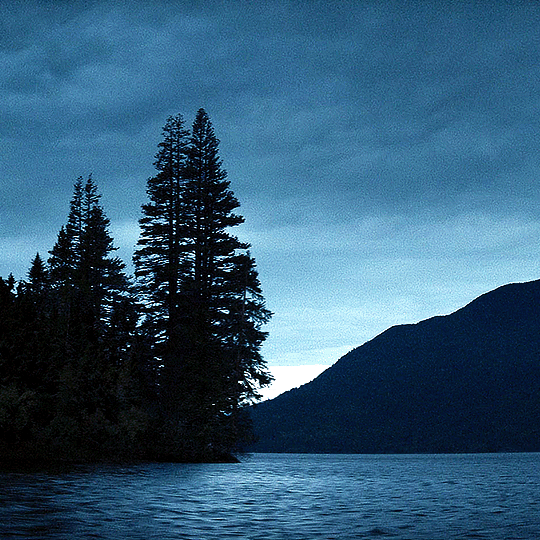
Just as the noh theatre in the show was a twisting of events within the show, so are all works of fiction that take inspiration from history. Some do it better than others. And on balance, in the show, Shōgun did it better than most. But so much of the marketing and the discussion of this adaptation has been on its accuracy. This has been by design - it was the strategy Disney adopted to market the show and give it a unique viewing proposition.
'This time, Shōgun is authentic!*
*an authentic Japanese period drama, but we won't mention that part.
And audiences have conflated that with what actually happened, as opposed to accuracy to a particular form of Japanese propaganda that has been honed over a century. This difference is crucial.
It doesn't detract from my enjoyment of it. Where I view James Clavell's novel as a horrid remnant of an orientalist, racist past, I believe the showrunners of 2024's Shōgun have updated that story to put Japanese characters front and centre, to decentralise the white protagonist to a more accurate place of observation and interest, and do their best to make a compelling subversion of the 'stranger in a strange land' tale.
But I don't want anyone who reads my words or has followed this series to think that the samurai were better than the armed thugs of any society. They weren't more noble, they weren't more honourable, they weren't more restrained. They just had 260 years in which they worked desk-jobs while wearing two swords to write stories about how glorious the good old days were, and how great people were.
Well... that's a bleak note to end on. Where to from here?
There are beautiful works of fiction that engage much closer with the actual truth of the samurai class that I'd recommend. One even stars Hiroyuki Sanada, and is (I think) his finest role.
I'd really encourage anyone who enjoyed Shōgun to check out The Twilight Samurai. That was the reality for the vast majority of post-Sekigahara samurai
For something closer to the period that Shogun is set, the best film is Seppuku (Hara-Kiri in English releases). It is a post-war Japanese film that engages both with the reality of samurai rule, and, through its central themes, how that created mythos was used to radicalise millions of Japanese into senseless death during the war. It is the best possible response to a romanticisation of a brutal, hateful period of history, dominated by cruel men who put power first, every single time.
I want to end this series, if I can, with hope. I hope that reading the novel or watching the 1980 show or the 2024 show has ignited in people an interest in Japanese culture, or society, or history. But don't let that be an end. Go further. There are so many things that aren't whitewashed warlords nobly killing - the social history of Japan is amazing, as is the women's history. A great book for getting an introduction to this is The Japanese: A History in 20 Lives.
And outside of that, there are so many beautiful Japanese movies and shows that don't deal with glorified violence and death. In fact, it makes up the vast majority of Japanese media! Who would have thought! Your Name was the first major work of art to bridge some of the cultural animosity between China and Japan stemming from WW2, and is a goofy time travel love story. Perfect Days is a beautiful movie about the simple joy of living, and it's about the most Tokyo story you can get.
Please go out, read more, watch more. If you can, try and find your way to Japan. It's one of the most beautiful places on earth. The people are kind, the food is delicious, and the culture is very welcoming to foreigners.
2024's Shōgun was great, but please don't let that be the end. Let it be the beginning, and I hope it serves as a gateway for you.
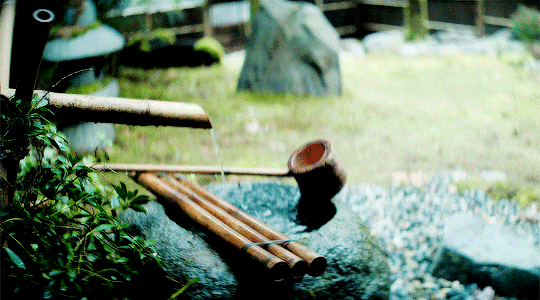
And I hope our little fandom on here remembers this show as a special time, where we came together to talk about something we loved. I'll miss you all.
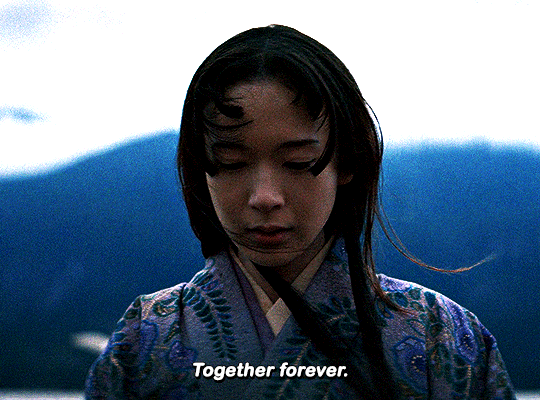
#shōgun#shogun#shogun fx#toda mariko#john blackthorne#anjin#adaptationsdaily#perioddramasource#hiroyuki sanada#yoshii toranaga#akechi mariko#history#history lesson#japan#world war ii#japanese culture#tokugawa ieyasu#hosokowa gracia#william adams#sengoku jidai#writer stuff#book adaptation#women in history#social history#period drama
173 notes
·
View notes
Text
Shōgun Historical Shallow-Dive: Part 2 - Heir Crash Investigations
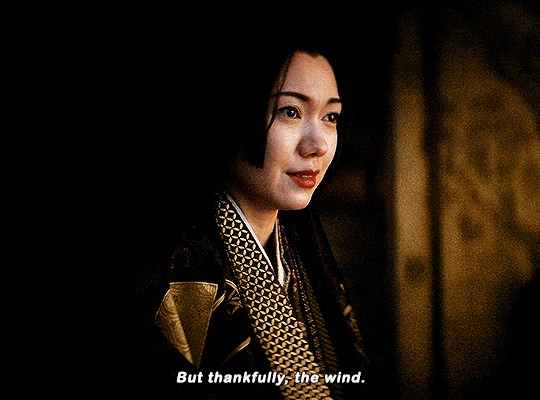
What happened to Ochiba no kata and Yaechiyo, the Heir, in history? This was the most requested topic for part two. Get ready for failson psych-outs, drag-king, diss-track action. None of that is a joke.
There is a very simple version of this story, and a very complicated version of this story. I'll try and split the difference, but again, if you're interested, best English-language high level overview of the period that is not horribly out of date.
Again! Not a professional historian, never did my PhD, so my opinion is going to colour this.
The simple version: Ochiba no kata in the Shōgun show is quite a departure from the historical Yodo-dono or Chacha. She did a lot of political manouvreing to try and get her son to regain the pre-eminent position in Japan, but ultimately lost out to Tokugawa's overwhelming political and military strength. Nobody knows if she died or escaped at the end of the siege of Osaka castle in 1615 (15 years after the show), so there are lots of cool folk tales about her.
The more complicated version:
Ochiba is depicted as a sneaky, conniving, scary lady who scratches out fate's eyes. Why? Short version, whilst she was a major magnate and power player during the period of the show and after, she was not a brilliant schemer. She also wasn't crazy malicious - she was trying to keep her son alive. Most of her plans came undone because of incompetence, not being a puppet master who bent men to her will with veiled seduction and threats. That's a later invention. (We'll come back to it at the end).
She was the dictator Koroda's (Oda Nobunaga's) niece, not his daughter. As far as is known, her and Mariko's real life counterpart, Hosokowa Gracia, did not hang out.
The real life Ochiba, Yodo-dono, became a nun after the Taiko (Toyotomi Hideyoshi) died. So... less sultry and cat-like, more pious, still an excellent political operator.
She stayed out of the war between the Regents and Toranaga/Tokugawa, and did send a letter to Toranaga/Tokugawa saying the Heir would remain neutral. This allowed the Eastern forces under Toranaga/Tokugawa to present Ishido/Ishida's mobilisation and war footing as rebellion against the Heir, and the Taiko's wishes.
After Sekigahara, Tokugawa (we're past the book now) claimed that he would be 'as a father' to the Heir - real name, Toyotomi Hideyori. Most of the Heir's former fervent supporters embraced the Tokugawa reign.
He didn't hate the Heir or want to knife him in his sleep. 'It must be emphasised that Ieyasu himself bore Hideyori no personal ill will. Although he had once been enemies with Hideyori's father, Ieyasu was sensible enough to acknowledge Hideyoshi's [the Taiko's] unique genius. He acted kindly towards the late Taiko's child.' (Chaplin, 511).
So how did they end up coming to blows? Ochiba no kata's real-life inspiration, Yodo-dono, was deeply suspicious of Toranaga/Tokugawa. She had her pride - expecting her son to inherit the Realm and all - and she was an excellent political operator in her own right. She wouldn't roll over and let Toranaga/Tokugawa throw all these plans away because of one battle between Regents. She stayed out of it to keep her options open.
Tokugawa was well on his way to implementing his unification of the realm plans, post-Sekigahara. He demanded that she and her son go to Kyoto to show they were good and loyal vassals. Yodo-dono refused on behalf of her, and her son, intuiting (correctly) that the Heir paying homage to Tokugawa would ruin what was left of the family claim. This certainly raised an eyebrow amongst the magnates who'd survived the civil war. To Tokugawa, this woman needed watching, as she was clearly not going to just accept that her son was just another daimyo now.
Once Tokugawa was made Shōgun, he installed one of his lackeys in Osaka castle to keep an eye on Yodo-dono/Ochiba, and the Heir. The lackey reported for a decade that the Heir was essentially 'effeminate' (his words) and a failson.
Tokugawa was fine with this. He was busy building a unified empire. He'd married his granddaughter-in-law to the Heir, and given away most of the Toyotomi (ex-Taiko) lands after the battle to lords that flipped to his side.
As far as Osaka went- Yodo-dono and the Heir - Tokugawa was, characteristically, waiting to see what would happen. He was hoping the whole Toyotomi 'remember how the Heir's dad was Taiko?!' thing would fade with time. Wishful thinking, but maybe the son of his late master would accept the way things were now.
Between 1601-1611, Tokugawa Ieyasu hadn't made up his mind to destroy the Toyotomi. After all, most of his ex-rivals were now scrambling to impress him by contributing the most money to ruinous castle-building programs he ordered, in order to keep them broke and squabbling amongst each other. Maybe Yodo-dono would guide the Heir to do the same?
Ding dong, daddy wants to check on his main political rival's kid! Tokugawa Ieyasu eventually remembered the Heir was still alive, and requested a meeting. Yodo-dono requested three Tokugawa hostages (three of Ieyasu's own sons!) before she'd agree to the meeting. She knew who he was, and she knew now what he was capable of.
Uh oh! In 1611, Tokugawa met the now 18-year-old Heir at a neutral castle and found him strapping, manly, and charismatic. His lackey had been lying to him! It turns out, the lackey keeping watch on Yodo-dono and the Heir had a soft spot for the Taiko, and had been deliberately telling Tokugawa not to worry about his son to try and prevent conflict. But this kid was dangerous. Dangerously awesome. If he impressed Tokugawa, there was a good chance he'd impress other busho and daimyo, drawing them to a faction to oppose the new Tokugawa rule.
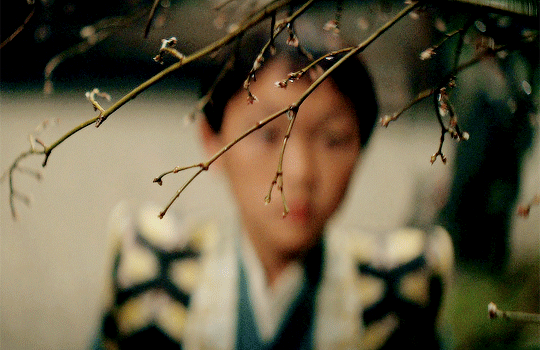
Rulers hate him! This little moron used time shut away in a castle to develop into a political threat!
It was at this point Tokugawa made up his mind to destroy Yodo-dono (her son's chief counsellor, and the political force behind a growing anti-Tokugawa movement), as well as the Heir. If you've read any history, a leader cementing power can't let remnants of the old regime hang around to act as a magnet for opposition. Especially if they are impressive and cool - Tokugawa was blown away by the boy's charisma and charm. So Tokugawa needed an excuse to take out the Heir. Any old excuse would do.
The excuse was lame, and arcane. The Heir's dad was famous for a sword hunt. Basically, the Taiko was a peasant who became a general who became a samurai, and wanted to pull the ladder up behind him. No non-samurai would be allowed weapons. No one was allowed class mobility anymore. You were what you were born, suck it, and a big part of that was confiscating weapons to ensure no more uprisings... like the Taiko had been a part of.
But because the Taiko was all about glitz, glamour, and what we'd now call virtue signalling, he was going to melt all of these swords down into a giant Buddha! It was a pious thing, honest! This buddha would be located at a temple called Hoko-ji.
It's 1614, and Yodo-dono has gathered a network of anti-Tokugawa daimyo, busho, and - importantly - samurai. Many samurai had been left masterless (ronin) after Sekigahara. Even those with lords had been transformed overnight from professional warriors to bureaucrats (we'll get to this in a later part). They were restless, out of work, and they flocked to her banner for the chance to get paid for their skills again, and lose the stigma of being masterless. With his ranks swelling, the Heir looked more and more like a viable political contender.
The Toyotomi, under Yodo-dono, with Hideyori as the pretty dashing figurehead, began to throw their weight around. They rebuilt Osaka castle's fortifications, and they forged a bell at Hoko-ji temple funded by the proceeds of Father's Great Sword Hunt. It wasn't any old bell though. It was a diss bell. Read in a certain way, the kanji inscription on the bell could be interpreted as breaking the Tokugawa in two, and 'may the Toyotomi rise... again?'
Tokugawa sent an envoy to Yodo-dono, asking that, given this insult, she and the Heir might consider relocating to another province. Say, a less central, less jewel-in-the-crown-with-an-impregnable-castle province. It'd help make up for the insulting bell, after all. The veiled threat was not very veiled. 'Leave while I give you the chance.'
This drew the battle-lines between those who still held out loyalty to the Taiko's clan (or who just hated the Tokugawa), and the Shōgun's forces. The former flocked to Osaka Castle and dug in.
That was enough for Tokugawa, who laid siege to Osaka Castle. Well, he was very old now, so he let his son - the Shōgun whose dad told him what to do - lead the siege. Assaulting the castle was a logistical nightmare, but luckily for Tokugawa and his fledgling Shōgunate, they outsourced much of the work to the lords who had pledged allegiance to the new regime (read: almost all of them). Keeping these lords poor - say, through funding hugely expensive military endeavours - was one of the ways Tokugawa Ieyasu and heirs exerted control. Ieyasu sat on a hill in a comfy tent while others bled gold (and blood) to build the expensive siege works and start the assault.
There were two sieges. One kinda worked, the second wasn't really a siege, but that's what they're called in the sources 🤷
The first siege was very much carrot-and-the-stick. Archers would loose arrows into the castle, with scrolls wrapped around the shafts, requesting the Toyotomi surrender. Politely. Poetically. It didn't work.
Tokugawa Ieyasu (Toranaga) tried bribing famous commanders inside the castle, including famed hunk-hero and coverboy of the Samurai Warriors games, Sanada Yukimura. He told Tokugawa to go fuck himself. Tokugawa tried bribing another general, who considered it, was discovered, and beheaded in Osaka Castle to encourage the others. 🙃
Yodo-dono started dressing up in samurai armor and walking the walls, in full view of the besieging armies. Her son's forces found this 'both unnerving... and condescending.' She was acting like a general, which pissed the generals off. She was also accidentally undermining her now-adult son, and sapping confidence from those who'd pledged to his banner. Read the room, lady. This doesn't seem to be malicious - this was just her first experience actually wielding power in an armed conflict. 'Although she feigned the image of a warlike Virago, she was in fact a cloistered and rather narrow-minded woman who understood little of what went on outside of her castle. As such, Ieyasu knew that she could be manipulated when the time came.'
What's the best way to manipulate someone? Fire cannon at them!
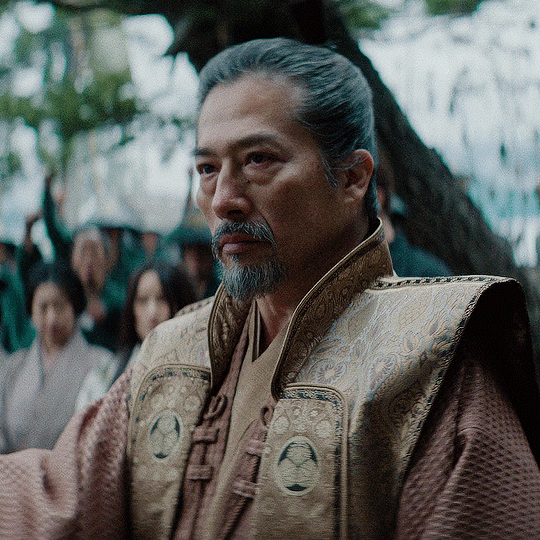
'And now for my most cunning plan. Blowing her up.'
Tokugawa ordered his son to focus cannon fire on the living quarters of Osaka Castle. Yodo-dono's quarters. Twice a day, every day. They were using cannon seized from Portuguese ships, and the gun-crews are likely to have been using training manuals originally drawn up by our old friend, the English pilot. He was off living his best life in Edo at the time. But he trained accurate gunners - one round shot hit Yodo-dono's quarters and nearly killed her. While she and her ladies were having tea. The gall.
This was enough for her. She ordered her son to make terms with the Tokugawa. This wasn't worth dying for.
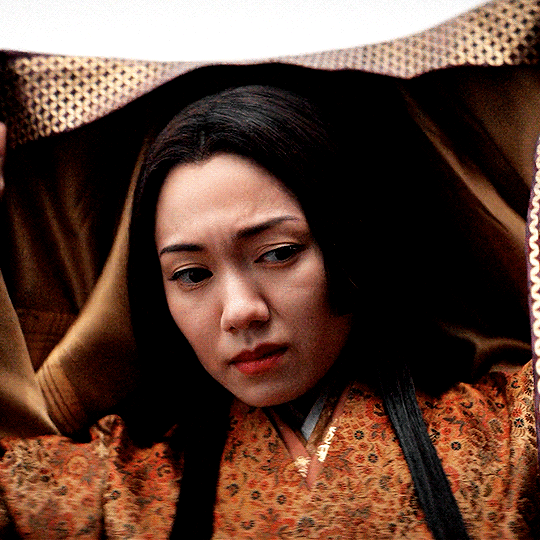
'Ugh, stop wrecking all my shit you fucking swine. That teapot was from Muji!' - Yodo-dono, 1615
Siege over! Can we be friends? Well, it's hard to go back from that. Tokugawa Ieyasu offered Hideyori/the Heir (well, really, his mom) two options: either Yodo-dono goes to Edo as a hostage to their family's good behaviour, or they agree to fill in the moat of Osaka Castle, making it less a fortress and more of a nice, big, open-plan house.
Option 2 was agreed, and Ieyasu issued a treaty document sealed with his own blood. The very obvious implication - don't fucking break it.
The Heir and Yodo-dono fucking broke it.
Urged on by his mother, Hideyori began to gather ronin (masterless samurai) back to his banner, re-dig the filled in moats, and gathered 120,000 fighting men to Osaka Castle. I forgot to mention how big this siege was, sorry. It was huge. And wouldn't you know it, many of these fighters were būsho, samurai, and ashigaru who were Christian. They saw the way the wind was blowing, and that the Tokugawa were getting wise to Portuguese intentions towards Japan. This might be their last chance (spoiler: it was).
The second siege (called the Summer Siege) began. From the Heir's side, it was much more ambitious than the first. The boy general, son of the Taiko, wanted to seize Kyoto, declare Tokugawa a traitor to the Emperor, and go on the offensive.
Unfortunately, like Sekigahara, many of the forces gathered in Osaka were there to oppose Tokugawa, rather than fight for one unified purpose. The war councils generally ended with disunity, and Yodo-dono kept interfering, which really, really was starting to wear thin with the Heir's vassals and allies. And the Heir himself. Imagine your mom turning up to work every day after you'd got a big promotion (Leader of the Western Armies). Not only that, your mom is literally coming to work in cosplay. The poor kid.
Long story short - Hideyori, the Heir, had no military experience. In a much-mythologised, last-of-its-kind battle between actual samurai - before they hung up their swords and became indentured bureaucrats - the Heir risked it all. His plan to sally forth and fight the armies of the Shōgun failed. They were beaten back by a contingent of 150,000 warriors under the Shōgunate, commanded by Ieyasu's son, Hidetada.
Key commanders were killed during the offensive, the Osaka forces lacked unity and cohesion (Sekigahara called, it wants its overarching lesson back). The Heir retreated back into Osaka Castle, but they didn't have a contingency plan and had few defences and obstacles established. The castle came under massive bombardment and constant infantry assault. The entire castle caught fire.
(Side note: a primary source written by a Dutch trader at the time said that generals loyal to the Heir set the castle on fire themselves, hoping to win favour with the Shōgun. Apparently, Hideyori discovered this and threw them off the ramparts into the flames. We'll probably never know whether that was true, but it's at least plausible.)
The Heir, Toyotomi Hideyori, and his mother, Yodo-dono - niece of Oda Nobunaga, most powerful concubine to the Taiko, most powerful woman in Japan - committed seppuku in the flames.
His body was found. Hers wasn't. You know what happens when this arises in history. There are folk legends that Yodo-dono escaped and lived a happy life in another province, but, hey, we all like a happy ending.
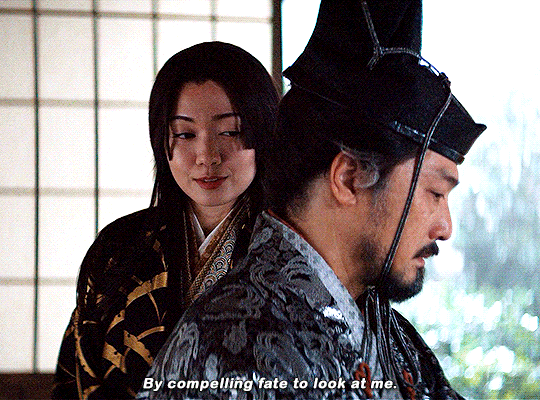
So if the inspiration for Ochiba no kata was a bit of a tone-deaf aristocrat nun who, whilst politically powerful, was not really a sexy, scary woman, how did we end up with Ochiba in the show?
After the Tokugawa defeated the Heir's forces, they had control of everything - eeeverything, including history books, plays, the works. What makes for a better story if you're on the winning side?
A mother was put in a terrible position when her husband, the ruler of the country, died. A group of men promised her husband they would place her son on the throne. One of them lied, stole the throne through force of arms and political savvy, and disinherited the son, despite the mother's best attempts. Her cause failed because she lacked the skills and authority to unify a movement, and her son was an untested youth who, in the end, just didn't have it.
The Heir's mother was an evil, scheming, sexually wanton (!) woman who destabilised the realm and got her son killed. She led them to disaster and without her, Tokugawa Ieyasu and the Heir would have gotten along fine! Her cause failed because she was a malicious harpy.
The Shōgunate chose option 2, and that's mostly the version we get in popular culture. It's hard to undo 260 years worth of character portrayal. Don't get me wrong, she was scheming, she was self-interested, but so was every major player in the period. She used her influence to gather support for her son, tried her best to overcome Toranaga/Tokugawa once she realised what he was, and she failed. To really send the moral message home, the Shōgunate cast her as a wicked woman, making her wickedness the reason she failed, not the complex factors that contributed to the downfall of the Taiko's clan.
So that's the story of Ochiba no kata's real life insiration, and what happened to the Heir - by far the most requested Part 2, and probably a bit depressing for Ochiba fans, unfortunately.
In Part 3, if there's any interest, we could look at the Dictator, the Taiko, and Toranaga and how they unified Japan, or we could look at a really interested question - what the hell happened for the 260 years of Tokugawa rule? How does it live on today (in some pretty dark ways) in the popular imagination? Your call.
#shōgun#shogun#shogun fx#john blackthorne#adaptationsdaily#perioddramasource#yoshii toranaga#akechi mariko#history#history lesson#japan#japanese culture#tokugawa ieyasu#fumi nikaido#lady ochiba#ochiba no kata#hiroyuki sanada
44 notes
·
View notes
Text
Shōgun writers on Blackthorne's journey, A Dream of a Dream's theme of letting go

Emily Yoshida (writer): "Blackthorne's fate is so interesting, and totally unexpected. People are going to see in it what they wanna see, because there's a lot of ways you can read it. It could be somehow worse than death, like a purgatory of some sort. And then there's a way in which you can read it as a life of devotion to something beyond him, which has been something that has been a struggle for him. How do you view Blackthorne's fate?"
Justin Marks (co-creator): "I think Blackthorne's journey in this episode to the place where it lands, in such a beautiful and powerful scene between Blackthorne and Toranaga - on that hill where he offers up his own life. That's the journey that I hope all of us are on, if we're trying to understand how we interact with cultures we don't know. We want to forge relationships with people that go on, but we don't necessarily speak the same cultural or spiritual - or literal - language.
Which is to say, Blackthorne has been a prisoner of his own ambition. Which one might call the disease of colonialism - or capitalism, too. This idea of a man who is so bound by his ambition and where he belongs in this world, and what is owed to him, that he is the worst prisoner of all. So is Yabushige. They're both like this. And Yabushige never comes to that awakening, and finds himself dying here.
But for Blackthorne, it revolves crucially on this idea of what we call the 'false dream'. We wanted to open this episode on what feels like the beginning of a flashback structure, where we jump forward into the future, and we meet Blackthorne as an old man, and we tell the story of an old man looking back. And looking back with regret on the life that he led.
Only to realise that that was not the dream of an old man looking back - it was the dream of a young man looking forward to one possible version of his life. A version of his life that he has to draw to an end by killing that path. What Blackthorne is trying to kill there isn't himself, it's the version of himself that he's always been.
When Toranaga knocks that knife out of his hand and looks down at him, he's looking at a man reborn now, to a completely different life.
What is powerful is the idea of a man finally, spiritually, letting go. And this is something that we talked about from the very beginning, Cosmo and I. This whole story for Blackthorne is really just a story of a man learning to let go."
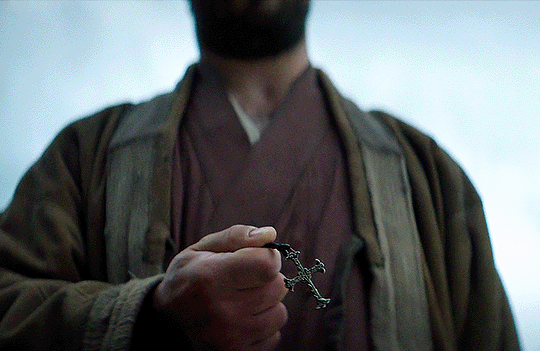
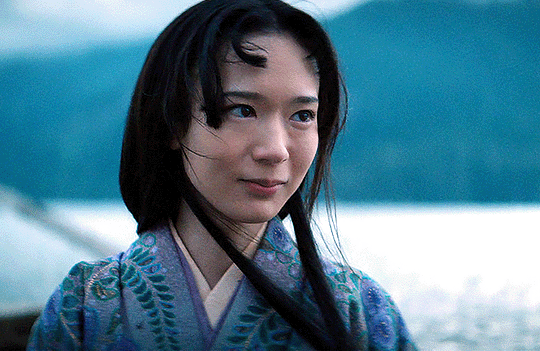

Shōgun official podcast Episode 10: A Dream of a Dream
#shōgun#shogun#shogun fx#hiroyuki sanada#cosmo jarvis#john blackthorne#yoshii toranaga#adaptationsdaily#dailyflicks#perioddramaedit#cinematv#tvandfilm#shogun spoilers#shogun 2024#writing#writer stuff
95 notes
·
View notes
Text
Shōgun Historical Shallow-Dive: Part 1
Does everybody else's heart hurt? Good! Let's get learning. These characters and the people that inspired them all deserve their own post, but here's a quick one if you're wondering what happened. This is a shallow-dive because the history is extremely complicated, and a condensed version of just the events leading up to Sekigahara (the battle depicted in the finale) take up entire volumes of history. I'll do my best to answer questions about what happened to our three protagonists, in the show, as well as real life.
One note: given I'm not a professional historian, I've got no obligation to not have biases and favourites. I've tried to keep most of them out of this, but if you want to punish yourself by trying to keep track of who's who in the Azuchi-Momoyama period, this book is the best English-language overview.
What happened to Toranaga (Tokugawa Ieyasu)?
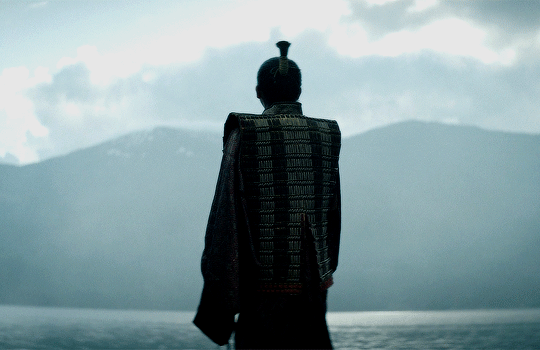
Gif: @yocalio
I am not as strong as I might be, but I have long known and practiced patience. And if my descendants wish to be as I am, they must study patience. - from The Legacy of Ieyasu Tokugawa
In the book, Toranaga reveals that it had been his aspiration to be Shōgun from the very beginning. That was what drove his alliance with the Taiko, that was what drove his feigned alliance with the Heir.
History follows a very similar path. I re-read some chapters on the battle of Sekigahara last night, and there is no easy way to explain it, but: the result of Sekigahara (an enormous, two-day battle with 200,000 samurai and ashigaru warriors in the field) was an enormous victory for Tokugawa, Toranaga's real-life counterpart.
Years - sometimes decades - of scheming by Tokugawa had made Ishido/Ishida's Western Alliance completely fragmented. In the months leading up to the period displayed in the show, Toranaga was calling in a lifetime of marriage alliances, diplomatic advantage, defensive pacts and childhood friends who'd risen to high status. Re-reading the sources, the names of all the lords of all the important fiefs and castles makes my head spin, let alone the ones that turned out to be pivotal to Toranga/Tokugawa's victory. But it was a resounding victory, and by both the numbers and the disposition of forces, he should have lost.
Historians have a consensus that if the 'Western forces' of the Heir had have fought together with a unified command structure, they would have won, easily. But they didn't - orders from Ishido/Ishida were ignored, Toranaga/Tokugawa endured onslaughts, and the Regents' opposing armies eventually fractured and melted away. This was a last-of-an-era battle. Families were fighting on either side, every single unit that could be brought to bear was on the field. It is no exaggeration to say Sekigahara is one of the few, unambiguous battles upon which the beginning of a historical era came down to.
Toranaga/Tokugawa triumphed because he spent decades building unity of purpose and strong alliances, simultaneously sowing division amongst the Regents, who ultimately balked at being commanded by a bureaucrat like Ishido/Ishida. Whilst there was no one decisive moment of an extremely bloody, rainy, two-day battle, the fact that Ishido/Ishida's forces refused to be told what to do by someone of lower status was the main theme of their defeat. A crucial army stationed on the hill stayed still, refusing to commit to either side, until Toranaga/Tokugawa fired muskets into their ranks. They made up their mind, and attacked Ishido/Ishida's Western army. Ishido/Ishida's one trick of firing a flare to commit the reserve army didn't work. The commander ignored it. Instead of being there to fight for something, Ishido/Ishida's coalition was there to oppose someone. They all had different reasons. And ultimately, the man that brought them together didn't command enough respect to command a battle.
As our show Toranaga said, the Regents fell upon each other. He might have been a bit optimistic about how and why this would happen (they fell over each other in retreat, and it took two days of horrific combat), but it happened. Tokugawa Ieyasu was famous for richly rewarding former enemies, and most of those he defeated kept their heads. This reputation is a strong incentive for leaving the field when things start going Tokugawa's way.
The two exceptions were Ishido/Ishida, and Kiyama/Konishi, both beheaded in Osaka (Ishido, bizarrely, was upbeat about his fate, until seconds before the sword came down). Killing Ishida was the obvious move, as the man schemed and bitched so much he caused a civil war. Killing Konishi was more calculated - it opened up his trade-hub in Kyushu to being ruled by a fervent Buddhist daimyo and ally of Tokugawa.
Toranaga/Tokugawa forces soon captured Osaka Castle after the battle of Sekigahara, and with it, the Heir.
Toranaga/Tokugawa 'reluctantly' accepted the Imperial appointment of Shōgun three years later, in 1603. In 1605, he abidcated, passing the title to his most malleable and competent son, Hidetada. He was the real power behind the throne and ruled until his death in 1616.
The year before he died, he was able to fully secure his legacy. The Heir (in real life, Toyotomi Hideyori) had begun to gather daimyo to Osaka castle who were opposed to Tokugawa. Tokugawa used the flimsiest of pretexts - the opening of a shrine - to order the Heir out of the castle. He refused, Tokugawa forces besieged the castle - twice. The first one was called off because cannon fire nearly killed Ochiba no kata, and she pushed her son to sue for peace. By the second siege, there would be no peace: the Tokugawa forces defeated all oppoosition, and secured the legacy.
Toranaga/Tokugawa's descendants would rule for 250 years of internal peace and external lock-down of the country from barbarians (and Christians), except for limited trade.
The big question: did Toranaga/Tokugawa really want to be Shōgun from the start? History tells us, rather unambiguously, yes - before the campaign, he was writing his 100 Articles for ruling Japan, which would be instrumental for his family holding on to power and preventing internal strife. His plan may well have gone back to his formative, teenage years. At the very least, it is highly likely it was solidified when Toranaga/Tokugawa was a vassal of the Dictator Koroda/Oda Nobunaga - the man Mariko/Hosokawa Gracia's father assassinated, who was brutal even by the standards of the day. We don't have time for him, the Taiko, and Mariko's father today - but my opinion is that the motherfucker firmly deserved to be assassinated, and the only amazing thing is that the inspiration for Mariko's father was able to hold off for so long.
But that killing set off a chain of events that would lead to Toranaga/Tokugawa becoming sole ruler of a unified Japan. So much of history is contingent on individual actors and random events. It didn't have to happen. It was extremely unlikely. But, through patience (and by my reckoning, a lot of luck), he made the world he wanted to see. Whether that was worth the price in lives is for the reader to decide.
But by all accounts, Toranaga/Tokugawa died very satisfied in the knowledge that his legacy was secure, his realm was unified, and, finally, at peace.
What happened to Mariko (Hosokowa Gracia)?
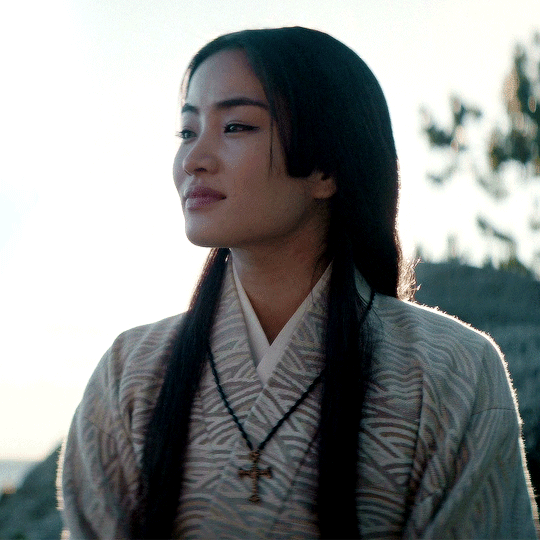
Gif: @yocalio
As is probably obvious, Mariko's purpose was fulfilled before the conclusion of the show. As is also probably obvious, her historical counterpart - Hosokowa Gracia - did not have an affair with an English sea pilot (😢). She did, however, change Japanese history, and tipped the balance of noble support towards Toranaga/Tokugawa. Her death had meaning.
The framing of her marriage to Buntaro and exile after her father's successful assassination of a brutal dictator is almost exactly correct. She was one of the most desirable, valued and accomplished young noblewomen of the day. The stain of the name Akechi would haunt her for the rest of her life. Real life Buntaro, Hosokowa Tadaoki, genuinely sent her away for two years to save her life. The Hosokowa family even went so far as to pretend that she had died, to save her from the Taiko's vengeance. Whilst her marriage was an unhappy one (though not, as far as is known, abusive), she was beloved by the head of the Hosokowa clan, the show's Hiromatsu. They went to extraordinary lengths to keep her safe.
Her main comfort in her life was her faith. It's perhaps here that we get the strongest through-line from Hosokowa Gracia to Mariko - unafraid, intelligent, and fierce.
She first came to learn about Christianity from her Christian maid, who extolled the virtue of the faith, and the opportunities for intellectual stimulation theological discussion could bring. In 1587 (five years after her father assassinated the dictator, three years after she returned from exile), she decided to take action on it. She snuck out of Osaka Castle and visited the main church in Osaka - she had lively conversations with the elderly Father-Visitor, and was an excellent pupil of both Portuguese and Latin theological texts. I don't know if you guys have ever tried to read those things, but even in translation, they are torturous. This woman was extremely intelligent.
As a noble woman of the Taiko's court, she knew he was about to issue an edict outlawing Christianity. Being the (excuse the language) absolute fucking badass that she was, she had her maid (baptismal name Maria) baptise her before the edict was issued, transforming from Hosokowa Tama to Hosokowa Gracia. Even though she had to keep her faith a secret due to the Taiko's edict, she found a way to hold on to it. She had a special sake cup made with the Hosokowa mon emblazed on the lip, which, on very close inspection, was actually a Christian cross.
During this time of her religious conversion and education, a primary source from a Jesuit priest says that 'I have never disputed with a woman of such clear judgement, and such definite knowledge.' She was known for being fiercely intelligent, and this is commented on in many European letters and journals that have remained from the Catholic church's time in Japan.
Her relationship with her husband - like Buntaro, a senior retainer of Toranaga/Tokugawa - was frosty. They never reconciled after her father's (Akechi Mitsuhide) rebellion, but her husband did recall her from exile when it was safe to do so, and she lived to serve a very similar purpose to Mariko in the book and show. By virtue of not being an interpreter, she was less close to Toranaga/Tokugawa than in the book and show, but she was still dedicated to her clan and her clan's overlord, as will become clear.
Just as in the show, Hosokowa Gracia agonized at the thought of seppuku putting her soul in mortal danger. But she perceived her duty to be to ensure death before being captured or otherwise dishonoured.
To put it bluntly, Ishido (Ishida in real life) fucked up. Before any military manouvers had begun, he went to seize hostages of friends and enemies alike throughout Osaka castle. His forces tried to forcibly seize Hosokowa Gracia from the family quarters. She gave orders for her senior retainer to kill her, her daughter, and set fire to their section of Osaka Castle, so that none could be taken and subjected to dishonour. She arranged with this samurai to stand on one side of a shoji screen, facing him. He stabbed her through the heart with a naginata. She died, satisfied in the knowledge that:
...the death was not suicide, and her soul would doubtless be spared from the torments of Hell.
Although not doing this directly on the orders of Toranaga/Tokugawa, it's highly likely she knew that she was making a statement (many of the other hostages went quietly). This furthered his cause immensely. Inspired by Hosokowa Gracia, families streamed out of Osaka Castle and other Regent-held castles by any method they could. Her example ignited a firestorm of controversy surrounding the gall of a jumped-up bureaucrat (a reputation Ishido/Ishida would never escape) forcing the death of one of the era's pre-eminent noblewomen. Although her husband was relatively unbothered by her death, her father-in-law - the book/show's Hiromatsu - was furious. Because of Hosokowa Gracia and his granddaughter's death, he immediately fortified his border castle.
He defied a large [Ishido/Ishida] army of 15,000 men with only 500 men of his own.
Many of [Ishido/Ishida's] commanders held [Hosokowa Fujitaka/Hiromatsu] in such high regard that they went through the bare motions of laying siege. On a regular basis, gunners 'accidentally' forgot to load their cannon with iron shot, and so Tanabe Castle's walls reverberated daily to the harmless booming of blank gundpowder explosions. [Ishido/Ishida's] military offensive had launched to a disastrous start.
The siege only ended because of an imperial decree (it's a long story - Fujitaka/Hiromatsu knew an oral tradition special imperial poem that risked dying with him, nobody could refuse the Emperor). More than this, any chance Ishido/Ishida had of convincing skilled and respected generals to commit to his side ended with Fujitaka/Hiromatsu's defiance. Such was the respect that he commanded, and such was the rage he felt at the death of his daughter-in-law, that he worked tirelessly to gather support for Toranaga/Tokugawa, despite his advanced years.
Mariko/Hosokowa Gracia's contribution was an inflection point to what many samurai, busho and daimyo were suspecting - that Ishido/Ishida was a snake bitch who couldn't be trusted (I believe that's the correct historical term). Her actions galvanized resistance against him, and continued to spread the wildfire that would seal his defeat on the battlefield of Sekigahara: 'Why are we taking orders from him?'
Importantly, Hosokowa Gracia's remains were gathered by a Catholic priest, and given a Christian burial in Osaka. From everything we know of her, this would have been very meaningful indeed. Just as with Mariko in the show's depiction, Hosokowa Gracia's death was not senseless or without meaning. It meant something, and continues to resonate through the centuries.
What happened to John Blackthorne (William Adams)?

Gif by @cinematic-gif-archive
The short answer: imagine an alien landed in America. It was smart enough to avoid death. It ended up chief special advisor to Obama, and they became bros. That is William Adams's life.
First things first: Blackthorne stays in Japan. 'Old Rich Blackthorne' scenes are basically fever dreams. I was worried when the episode opened with a flash-forward to an old man living in Tudor comfort. This would be a huge change from both the book, and history. The novel ends with Toranaga confirming that his plan is for Blackthorne to never leave Japan. Blackthorne finds his place there. In history, the same is true of William Adams.
In episode 10, the 'is this a flash-forward?/is this a dream?' question is answered halfway through the episode. Blackthorne drops Mariko's cross over the side with Fuji's family ashes. As soon as that's done, the aged visions of Blackthorne disappear.
For those who are more textual than visual: the episode is titled A Dream of a Dream (a play on the title of the Taiko's death poem). Concussed, grief-stricken Blackthorne is dreaming of the dream he used to have - returning to England with riches and glory, his family name secure, with every comfort Queen Elizabeth the First can offer a pirate-explorer like Sir Francis Drake or Sir Walter Raleigh. But as soon as he lets go of Mariko's cross into the water (earlier, actually, when he sincerely attempted seppuku to try and save the people of Ajiro) that dream stopped appearing. The dream he had of exploiting Japan for riches and glory was gone, replaced with the reality of the life he is left to build.
In the show and the book, Toranaga is explicit about never letting Anjin-sama/Blackthorne leave Japan. If he builds new ships, Toranaga will burn them again. He needs Blackthorne's knowledge, expertise, and - in a bizarre twist of fate - friendship. We leave him hauling his wreck from the harbour, ready to salvage the keel and spars, to build a new ship in Japan.
So how does this marry up with history? Extremely accurately. As far as we know, the historical William Adams was slightly less of a pirate/privateer than the book/show's John Blackthorne. His hatred of Catholicism was more driven by their fervent desire to kill him, which they kept up for nearly a decade. His interest in exploration, in the show and in the historical record, was genuine.
The show's story very closely follows what actually happened in real life (again, sans romance... although he does have love in his life, which we'll get to). His crew were initially imprisoned, he was summoned by Toranaga/Tokugawa, and met with him many times to discuss his knowledge of the outside world, trade, and Christianity's impact in Asia. The Jesuits did pester the Council of Regents, and Toranaga/Tokugawa in particular, to execute him. Toranaga/Tokugawa refused, saying this barbarian had done nothing to harm Japan or its people. The Jesuits would not forget this.
He did train elements of Toranaga/Tokogawa's army in how to work the cannon his ship possessed - a skill he possessed, but no one else was willing to offer. He actually followed Toranaga/Tokugawa to several battles. Recent primary source evidence has revealed it was highly likely he was actually at the Battle of Sekigahara, which is a very recent development in the historiography of his life. It is just bananas insane, but it demonstrates just how useful (and likeable) Blackthorne/Adams was to Toranaga/Tokugawa.
I've read two biographies of William Adams, and he was very, very like the Blackthorne portrayed by Cosmo Jarvis. Other Europeans in Japan complained that he was arrogant and dismissive - historians see this as Adams adapting to his station in Japanese society, and being extremely frustrated with European manners and bearing in Japan.
Once Toranaga/Tokugawa became shōgun, Adams - already a samurai - was made hatamoto, and forbidden from leaving Japan. He was granted many generous cuckoos (250 of them!), an estate in Edo, a fief at the entrance to Edo bay, and rose to become Toranaga/Tokugawa's chief trade advisor. During Toranaga/Tokugawa's remaining life, he built two Western-style ships (which Tokugawa came aboard and was very pleased with - that's nice!), and took over piloting duties of Portuguese and Spanish ships making landfall in Edo, pissing off the Catholics to no end.
On Ieyasu Tokugawa's death in 1616, his holdings and fief were confirmed by the new shōgun, Ieyasu Hidetada. But his relationship with the court wouldn't be the same. My reading of the sources leads me to believe that James Clavell was right here: Toranaga/Tokugawa Ieyasu genuinely liked Blackthorne/William Adams, and wanted him around.
As more and more Europeans arrived in Japan, including the English and the Dutch, Adams served as translator for them, and - for the Enlgish - fixer whenever they did something barbaric and rude that would warrant execution. He seemed to view spending time with the (no joke) drunken, whoring, disgusting-smelling English trading factory members as an extreme annoyance. He seemed happiest at sea, and at his mansion in Edo, where he married the daughter of a merchant in 1613. Whilst her name is lost to the historical record, they had two children, Joseph and Susanna.
He wasn't a deadbeat dad - he wrote to his wife back in England, explaining that he could not return. She was a firebrand, and eventually extracted a form of life insurance from the Dutch company that had contracted Adams's piloting services. Partly she was able to do this because of a proclamation issued by Toranaga/Ieyasu Tokugawa: 'William Adams was dead the day he was made samurai, and Miura Anjin - the pilot of the fief of Miura - was born.' That sounds like a badass quote I've made up, but that's one of the English translations of Tokugawa's proclamation.
Adams kept up his maritime adventures, charting the Japanese coast, going on several trading missions to Southeast Asia (sailing to Thailand and meeting with the King of Siam, furthering his amazing ability to charm and dazzle). He struck up firm friendships with members of Tokugawa's court, fellow Japanese merchants in Edo, and the much more polite Dutch traders, despite the tensions that had grown between their two countries.
There's an important aspect of his legacy that endured for centuries. Toranaga/Tokugawa, suspicious of what he had learned of Catholic conversion and invasion of other Asian states, was already disposed to be wary of the Church. The Church in Japan would not let Adams rest, attempting to kill him, convert him, bribe him, and offer him passage home in 1614 on a Portuguese ship. In the same year Portuguese priests claimed that only Spanish miners had the skills to open up the mineral wealth of Japan. Adams warned the shōgun, again, that this was the Catholic way - first the priests, then the conquistadores.
Influenced by these reports and counsel, and because the Jesuits legitimately were conspiring to do the shit Adams accused them of (always a tough charge to defend), Toranaga/Tokugawa Ieyasu expelled all Portuguese priests in 1614, and demanded all Japanese Christians recant. Apart from this leading to the Dutch being the only nation allowed to conduct trade with Japan, this was the end of Japanese Christianity, until the country was forced open in 1855. Christianity never took root in the same way it would in places like Brazil and the Philippines. Was William Adams the only factor in this development? No. Was he a factor? Yes.
He died in 1620, after twenty contented years in Japan and Asia. His will stipulated that his estates and belongings be split evenly between his family in England and Japan. One of Adams's colleagues recorded that Ieyasu Hidetada transferred lordship of Adams's fief to his Japanese son, Joseph, as well as his katana and wakizashi. His line fell out of the historical record, but memory of and monuments to the Anjin remain in Japan.
Faring Well
Shōgun, the book, was fiction, written by a man fascinated by Japanese history, driven by a desire to bring it to the world. He was overwhelmingly successful. It was an excellent start, and even fired up some fascinating academic discussion at the time that I'd definitely recommend. The 2024 adaptation, in my view, changes many of the elements that have aged poorly, were flat-out wrong to begin with, and - like all great adaptations - adds to the work, rather than cheapening it.
Despite being based on real people, the fictional characters created for the show - Blackthorne, Toranga, and especially Mariko - feel real. That is an amazing achievement.
I hope this opens up an interest in Japanese history for some viewers. Being able to visit the places where these events took place is a truly awesome experience. Like all history, it's for individuals to judge what they think of the players.
Hiroyuki Sanada said that he admires Tokugawa Ieyasu because of his ability to bring forth 250 years of peace out of nearly 500 years of chaos. Was Ieyasu motivated by altruism, or self-interest? Does it even matter?
Anna Sawai saw in Hosokowa Gracia a moving, powerful woman, deeply committed to her faith, and to doing what she believed was right in the context of her time. As a person without faith myself, I found this portrayal of genuine belief extremely moving. The demonstration of her convictions was one of the most amazing performances I've ever seen.
And as for the English pilot, Cosmo Jarvis said he wanted to capture the restlessness of Adams, his slow transformation and growth, and the unique qualities that allowed the man to survive and thrive in an extremely deadly time. One thing he nailed that I think even James Clavell messed up was how deepy strange William Adams was. Not weird, not insane, but just a very singular individual. Biographers talk about his aloof, detached, self-aware nature being misconstrued as arrogance by Europeans who encountered him in Japan. Part of it was his annoyance at their inability to learn how to be in Japan; part of it was that he was simply built very differently. In embodying this, I think Cosmo Jarvis succeeded amazingly.
From what we can find in the historical record, William Adams and Hosokowa Gracia may not be 'great' in the sense that Tokugawa Ieyasu was 'great'. They did not build an era. To borrow a phrase from one of my favourite historical writers, whilst they may not be 'great' people, they were good people. That is vanishingly rare in the history we celebrate, and I think, for that reason alone, it's important to remember them, and the things they lived and died for.
#shōgun#shogun#shogun fx#anna sawai#cosmo jarvis#toda mariko#john blackthorne#anjin#adaptationsdaily#perioddramasource#hiroyuki sanada#yoshii toranaga#akechi mariko#history#history lesson#japan#japanese culture#tokugawa ieyasu#hosokowa gracia#william adams
174 notes
·
View notes
Text
Shōgun finale: good luck everyone
No matter how tonight's episode goes, it's been a privilege talking about the show, the book, and the history with you all. I'll miss Shōgun Tuesdays very much.

#shogun#shogun 2024#shogun fx#cinematv#perioddrama#john blackthorne#cosmo jarvis#anna sawai#fx shogun#dailyflicks#everyone is a hawk#i did not choose to be what i am#it is my karma
21 notes
·
View notes
Text
“Hell’s no place I haven’t seen before. Let it from your mind."
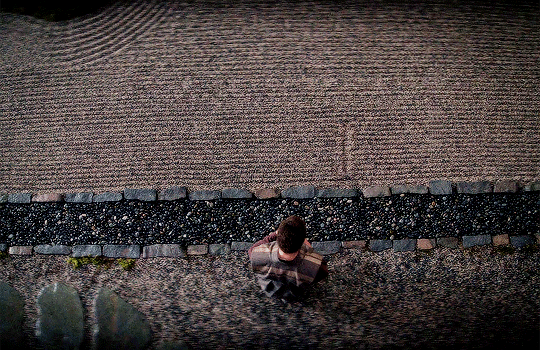
Gif: @yocalio
'Shogun showrunner Rachel Kondo revealed that the idea to have Blackthorne step up as Mariko’s second was initially “a shock” to her.
“It was one of those things that felt both surprising to us, but also inevitable. Like, naturally, this is the woman he loves. He doesn’t want her to writhe in eternal hell that he knows she believes in, right? I don’t even know if he believes in it, but he, this was his moment to look at her and to see her and to do something,” Kondo said.
“The one thing he does not want to do — he most doesn’t want to do — and he does it because of her, for her.”
Blackthorne’s poetic “last words” to Mariko during the seppuku scene were a suggestion from Cosmo Jarvis: “Hell’s no place I haven’t seen before. Let it from your mind,” to help him grapple with Blackthorne’s out of character decision to volunteer to kill the woman he loves.
“It was quite a challenge to find the motivation for a man to do that,” Jarvis said. “A man who hates unnecessary violence. Blackthorne hates unnecessary violence. And this would be the pinnacle of unnecessary violence and it’s somebody that he cares deeply for.”
“But, you know, that’s the joy of the work. You have to find motivations for these things and you have to do them and commit to them,” he said, explaining the genesis of the line, applauding the showrunners' collaborative nature for keeping it in.
According to Anna Sawai, Blackthorne’s decision to step up and second Mariko’s seppuku was “the biggest gesture of love that she feels from him.”


Gifs: @yocalio
“It’s when she realizes how much she means to him. Because he is a Protestant and he’s going against his religion and he’s taking her over himself. He’s allowing her to die a loyal Catholic and a samurai,” Sawai said during an interview earlier this week. “It’s a very romantic thing for her and she’s in a way kind of seeing him in different eyes because of what this means."
“He’s taking her over his own religion and beliefs,” Sawai explains of the powerful moment. “A couple scenes before that he’s asking her to keep living for him. And so I think that it just shows that he really, really cares, and that is the most romantic thing that you could ever do for someone that you love.”
Mariko is spared, for a night. A night that Mariko and Blackthorne get to share together. Although Yabushige’s treachery would result in Mariko’s death later that night, the two lovers get to spend one last evening in each other’s arms.
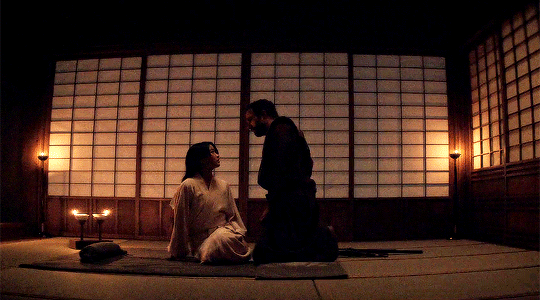
“It was just a moment of like, ‘I deserve this. We deserve this. We accept each other, we see each other and we can share this moment together,'” Sawai said, giving Mariko’s story a bittersweet, tragically romantic ending.'
Full interviews:
Anna Sawai Reveals the Moment Mariko Fell in Love With Blackthorne
Anna Sawai Details How Mariko’s Seppuku Attempt in Episode 9 Binds Her and Blackthorne Forever: “It’s a Very Romantic Thing for Her”
#shogun#shōgun#shogun spoilers#shogun 2024#fx shogun#perioddrama#shogun fx#anna sawai#cosmo jarvis#toda mariko#john blackthorne#mariko x blackthorne#dailyflicks#cinematv#tvandfilm#akechi mariko#my fucking heart hurts please help 😭
146 notes
·
View notes